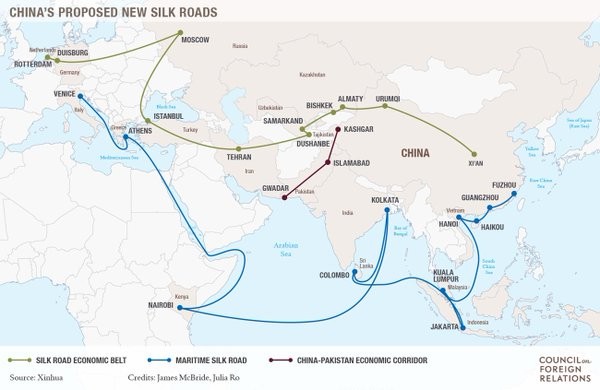Thailand has rejected China's land rights request for its railway project, putting a hurdle to Chinese President Xi Jinping's Silk Road initiative.
According to Thai Transport Minister Arkhom Termpittayapaisith, his office has already told Chinese officials that they will not be granting land rights for the construction of a new railway from Bangkok to the northeastern city of Nong Khai, Bloomberg reported.
China has earlier acquired commercial land rights for the development of the area around the tracks' would-be stations. Chinese officials then pressed for more collateral for funding, which the Thai government rejected, Arkhom said.
The minister stressed that they are not willing to concede to the further terms made by their counterparts for the project. "Thailand is not the same as Laos," Arkhom remarked, referring to the neighboring country, which has already given a go signal to the proposed railway project that will connect the two countries.
The Lao Ministry of Foreign Affairs declined to comment on the statement.
Thailand's rejection of the railway proposal is the latest in a series of setbacks that has hit Xi's Silk Road Initiative. Funding for the Altai gas pipeline that would connect western Siberia in Russia to China has been put on hold indefinitely. Meanwhile, the "Power of Siberia" gas pipeline that the two countries have agreed on in 2015 have also encountered problems, Asian Sentinel reported.
Xi has championed the initiative, a revival of the ancient Silk Road trade routes, as a strategy to foster trade and investment cooperation among countries in Asia, Europe and Africa that were once part of the route.
As part of the initiative, the Asian Infrastructure Investment Bank (AIIB) was launched last year. A $40 billion Silk Road Fund was also allotted for the project and bilateral lending through state-owned banks have been opened.
Arkhom said that they are still open to potential Chinese funding, such as through the AIIB. However, no discussions are yet underway.



























